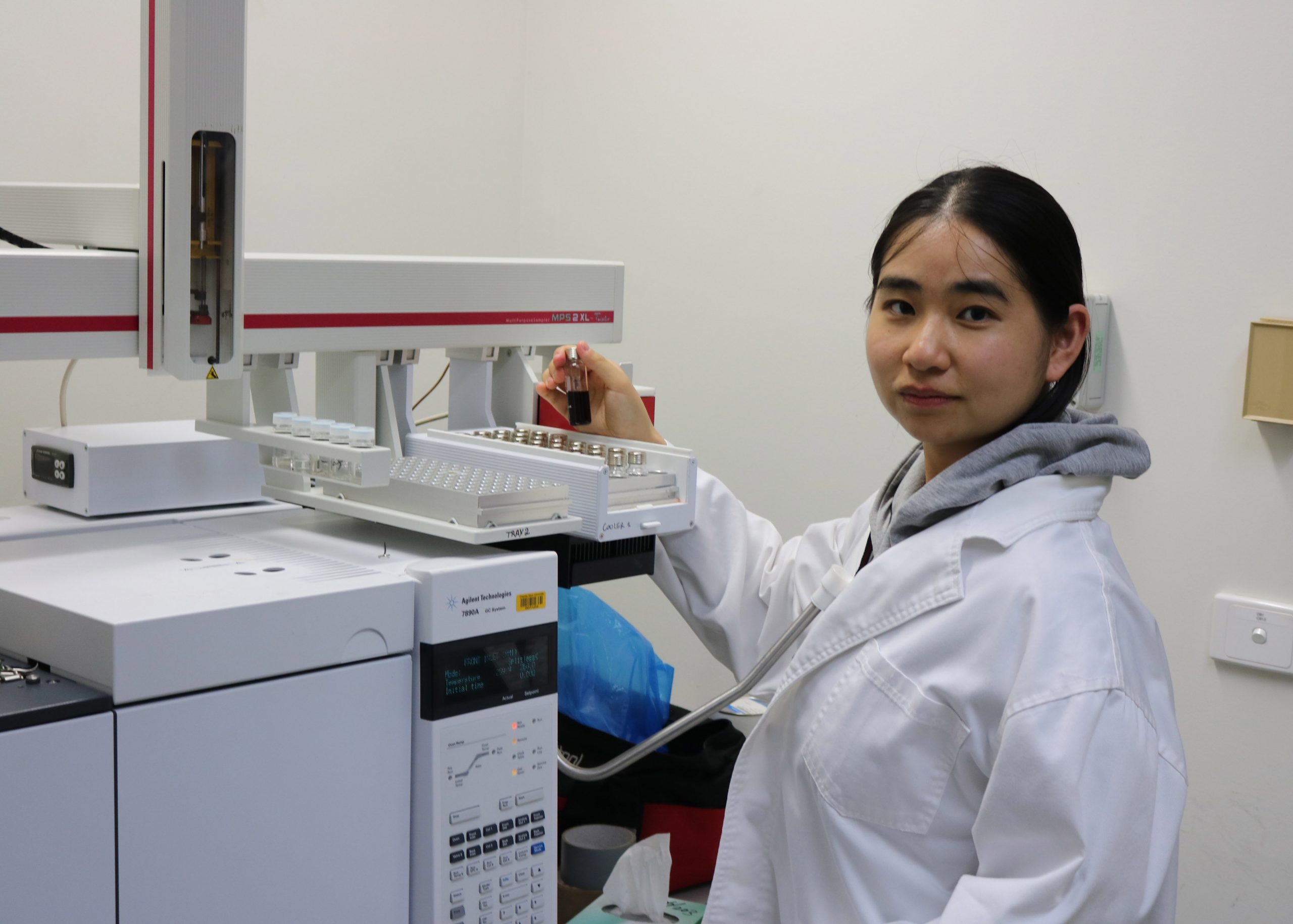Could you tell us a bit about yourself and your academic background?
 Hi, my name is Liang Jiang and I’m from the quiet city of Anqing in eastern China. Before I pursued my PhD program I studied in Beijing and Sydney.
Hi, my name is Liang Jiang and I’m from the quiet city of Anqing in eastern China. Before I pursued my PhD program I studied in Beijing and Sydney.
In Beijing I studied environmental science and petroleum engineering at China University of Petroleum. In my second and third year, I completed a chemical experiment series which used bagasse (the fibrous plant material of sugarcane leftover after extraction of liquid for sugar production) in hydro-thermal reactions to generate hydrocarbons for use as a potential alternative energy source in place of fossil fuels. This was when I first learnt about analytical chemistry and instrumentation. In my fourth year, I had the chance to develop a method identifying different microorganisms by pyrolysis gas chromatography as my final undergraduate project. In this project I learnt how to design experiments to answer questions about a specific and intricate topic. It also taught me to be well organised. It was a good opportunity to see outcomes and envisage new discovery, and more importantly, it inspired me to do research.
I then moved to Australia and started my Master of Science (MSc) in Chemistry with A/Prof. W. Alex Donald at the University of New South Wales (Sydney). I kicked off my MSc program by developing a tool to capture circulating tumour cells (e.g. MCF-7 cells, a breast cancer cell line) from blood samples and detect them using fluorescence microscopy and mass spectrometry. This involved an antifouling layer modification and the ‘decoration’ of a specific tumour detecting antibody on an indium-tin oxide (ITO) coated glass slide. This technique has the potential to become an early detection test for circulating tumour cells in blood. Apart from instrument operations, surface chemistry and mammalian cell culture, I also learnt more about complex research experimental design and workflow. I think the most important thing I have learnt from my Master’s project is how to deal with challenges in research.
After my Masters degree, I wanted to do a PhD project that involved biological sample analysis using instrumentation. And here I am, identifying grape off-flavours prior to harvest by mass spectrometry at the National Wine and Grape Industry Centre at Charles Sturt University and supported by the Australian Research Council Training Centre for Innovative Wine Production.
Could you introduce us to your project and what it involves?
 Fungal related off-favours lead to millions of dollars loss in Australian wine grape production. To eliminate such problems, my project will help to develop a method to identify the fungal infections of grapes before harvest.
Fungal related off-favours lead to millions of dollars loss in Australian wine grape production. To eliminate such problems, my project will help to develop a method to identify the fungal infections of grapes before harvest.
The first part of the project will develop a new ionisation method for the detection and identification of specific fungal pathogen biomarkers. We will then test and calibrate the method on grape and wine samples that have been inoculated with lab-cultured fungi and further develop the method as needed.
The analysis of each sample using this new method will be less than one minute, which would make pathogen infection detection in the vineyard very fast, allowing viticulturists to make decisions on how to manage early infections rapidly.
The fungi culture and grape inoculation will be performed at Charles Sturt University with Prof. Leigh Schmidtke and Prof. Chris Steel. The instrumentation design and development will be performed at the University of New South Wales with A/Prof. W. Alex Donald and Dr. Morphy Dumlao.
What can you see yourself doing in the future?
I would love to continue doing research or laboratory work as my undergraduate years have inspired me. I am always keen to learn and discover new things, about bacteria, cancer cells, fungi, grapes, new analytical methods or techniques, or basically anything!
